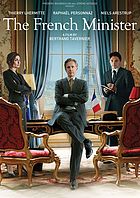Some dark, but very good, reading this week.
This week the "
Deal Me In" card is the Eight of Clubs and the story is
Modern Uses of Language (in
The Oxford Harriet Beecher StoweRreader)
Tongue in cheek essay that is every bit as relevant today as when it was written in the 1830s.
from my shelves...
Oliver Loving by
Stefan Merrill Block
A town deals with the aftermath of a school shooting. Told from several points of view. Along with the big question of "Why did he do it?" each character wonders if somehow they could have intervened to prevent it.
Advance review copy
How To Be a Good Wife by Emma Chapman
Marta and Hector have been married for twenty-five years and have a grown son. They live by a small Scandinavian village. Their lives are pretty uneventful until Marta quits taking her medicine. She starts having hallucinations or are they really memories? What is the truth about her past? Did her parents really die in an accident when she was a teenager or was there something more sinister in her past? Post traumatic stress disorder or false memory syndrome? An oddly satisfying read.
Free review copy through Shelf Awareness. A debut novel.
House of Rougeaux by Jenny Jaeckel
This is a far flung family saga that begins with slaves in Martinique and skips back and forth in time and place. To Canada, The United states, Europe, and back to the Caribbean. The story jumps from 1785-1869, then to 1949, then 1964, then 1925, then 1853, then 1883-1889, and then the late 1800s. Each section looks at a different family member. They are like a series of interrelated stories.
I rather liked this approach. It's very much the way we learn our own family history, with this great aunt telling us about one journey, a grandmother filling us in with stories of her childhood, another bit learned from a document--all coming at different times, out of order, leaving us to piece together what we can.
If this seems confusing and disjointed there is a nice family tree to help keep track of everyone. If this hadn't been provided, I would have had to draw one up.
A sequel is promised. I look forward to it.
Advance review copy through LibraryThing. A debut novel.




